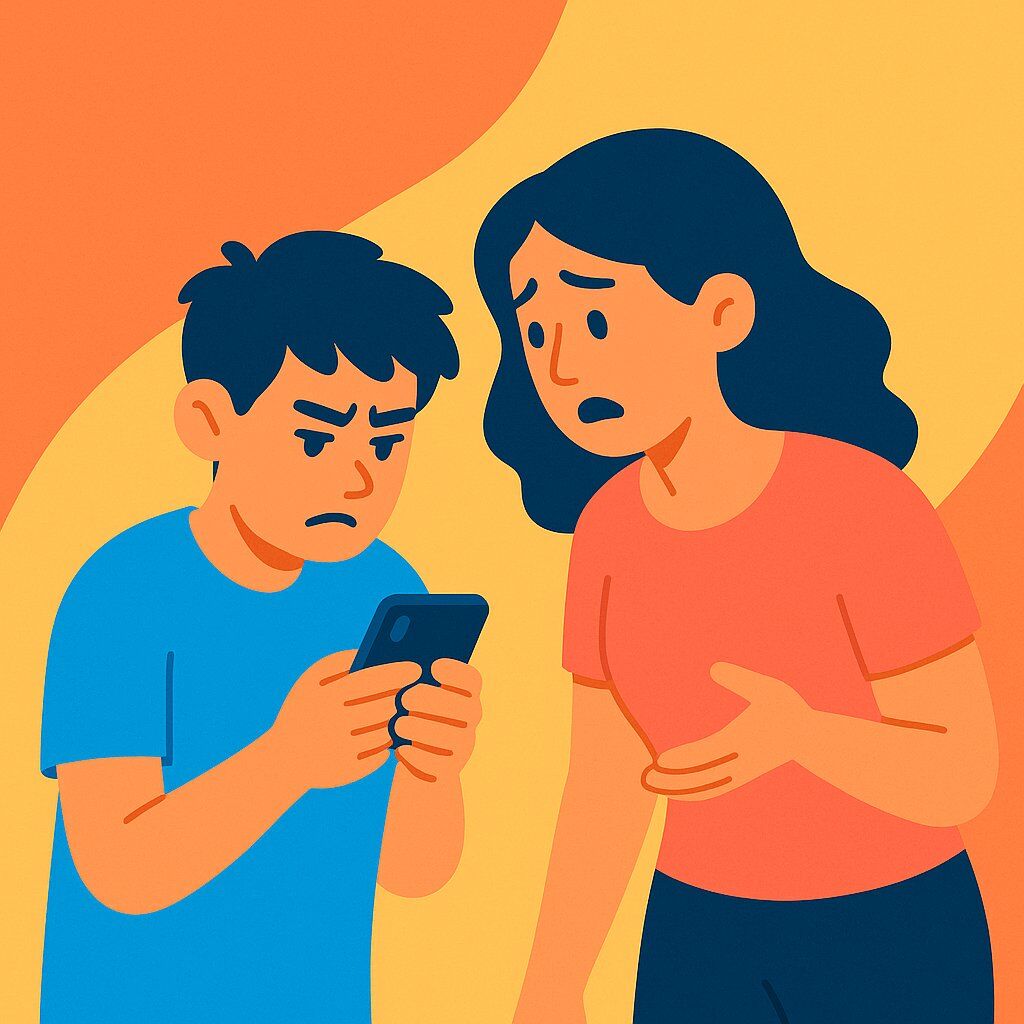Screen Time Isn’t the Enemy—Addictive Use Is, Says New Study
Remember when we thought turning off the WiFi would solve everything? A new study from Columbia University Irving Medical Center and Weill Cornell Medicine suggests that the real issue isn’t how long our kids stare at screens; it’s how they use them. Researchers followed nearly 4,300 children from age 8 through early adolescence and discovered that those who developed compulsive, addictive patterns around phones, social media and video games were two to three times more likely to experience suicidal thoughts, attempts or symptoms of anxiety and depression. Meanwhile, kids who simply racked up more screen time—but weren’t emotionally attached to their devices—showed no greater risk.
This isn’t about wagging a finger at the number of minutes your teen spends on TikTok. The study found that about half of kids showed high addictive mobile-phone use from the start, and roughly 25% grew more dependent over time. Around 40% had high or increasing social-media addiction. Video games offered a simpler story: kids were either high users or low users, with no gradual slide into addiction. The researchers emphasise that these patterns matter more than the clock. Five per cent of participants reported suicidal behaviours by the fourth year of the study, and those with addictive screen-use trajectories were at far greater risk.
So what’s a parent to do? Instead of counting minutes, pay attention to signs of craving: does your son panic when his phone battery hits 10%? Does your daughter feel compelled to scroll through her feed when she’s upset? Columbia’s J. John Mann says families should seek professional help if a child’s digital habits interfere with school, chores or relationships. Lead author Yunyu Xiao urges policymakers to ditch one-size-fits-all screen-time limits and focus on identifying and addressing addictive patterns.
In Cairo and across the Middle East, we often blame social media for our teens’ mood swings. This research invites a more nuanced conversation. It’s not about throwing every phone into the Nile; it’s about helping kids build a healthy relationship with technology. That might mean setting device-free times, encouraging offline hobbies and checking in emotionally rather than confiscating devices. After all, when our children learn to wield screens as tools—rather than emotional crutches—we won’t need to police every minute. We’ll be too busy enjoying their company.
Sources:
– Columbia University Irving Medical Center news release on June 18, 2025 about the study linking addictive screen use to mental health and suicide risk.
– Weill Cornell Medicine news story summarising the study, explaining that addictive use patterns, not total screen time, predict worse mental health.
وقت الشاشة مش العدو – الإدمان هو الخطر، دراسة جديدة بتقول
فاكر لما كنا متخيلين إن نقفل الواي‑فاي حل كل حاجة؟ دراسة جديدة من جامعة كولومبيا وكلية طب وايل كورنيل بتقول إن المشكلة مش في الوقت اللي عيالنا بيقضوه قدام الشاشات، لكن في طريقة استخدامهم. الباحثين تابعوا حوالى ٤٣٠٠ طفل من سن ٨ سنين لغاية المراهقة، ولقوا إن اللي بيطوروا أنماط استخدام إدمانية للموبايل والسوشيال ميديا وألعاب الفيديو بيتضاعف خطر تعرضهم لأفكار ومحاولات انتحار وأعراض قلق واكتئاب. أما اللي بيقضوا وقت طويل قدام الشاشة بدون تعلق عاطفي، فمش شرط يكون عندهم نفس المخاطر.
الموضوع مش عد الدقايق اللي ابنك بيقضيها على تيك توك. الدراسة لقت إن نص الأطفال تقريباً بيظهر عليهم إدمان عالي للموبايل من البداية، وحوالى ربعهم بيعتمد عليه أكثر مع الوقت. حوالى 40٪ عندهم إدمان عالي أو متزايد للسوشيال ميديا. ألعاب الفيديو لها قصة أبسط: يا إما استخدام عالي يا استخدام منخفض، مفيش تدريج. الباحثين بيأكدوا إن الأنماط دي أهم من ساعة المنبه. 5٪ من المشاركين أبلغوا عن سلوكيات انتحارية في السنة الرابعة للدراسة، واللي عندهم أنماط إدمانية كانوا في خطر أعلى بكتير.
نعمل إيه كأهالي؟ بدل ما نحسب الدقايق، ركّز على علامات الاشتهاء: ابنك بيقلق لما بطارية موبايله توصل 10٪؟ بنتك لازم تفتح الفيد لما تكون متضايقة؟ الطبيب جون مان من كولومبيا بيقول لازم نطلب مساعدة متخصصين لو العادات الرقمية بتأثر على المدرسة أو المهام أو العلاقات. الباحثة يونييو شياو بتشجع السياسات اللي تركز على اكتشاف وعلاج الأنماط الإدمانية بدل الحدود العامة لوقت الشاشة.
في القاهرة وفي الشرق الأوسط، كتير بنلوم السوشيال ميديا على تقلبات مزاج أولادنا. البحث ده بيخلينا نفكر بطريقة أعمق. مش المطلوب نرمي كل التليفونات في النيل؛ المطلوب نساعد أولادنا يبنوا علاقة صحية مع التكنولوجيا. ده ممكن يعني وقت محدد من غير أجهزة، تشجيع هوايات خارج النت، وسؤال عن مشاعرهم بدل ما نسحب الموبايل. لما ولادنا يتعاملوا مع الشاشة كأداة مش كعكاز عاطفي، مش هنحتاج نراقب كل دقيقة. هنكون مشغولين نستمتع بقعدتهم.
المصادر:
– بيان جامعة كولومبيا في 18 يونيو 2025 عن الدراسة اللي بتربط إدمان استخدام الشاشة بمشاكل الصحة النفسية ومحاولات الانتحار.
– تقرير كلية طب وايل كورنيل عن الدراسة بيشرح إن الأنماط الإدمانية مش الوقت هو اللي بتنبَّأ بسوء الحالة النفسية.







Leave a Reply
You must be logged in to post a comment.